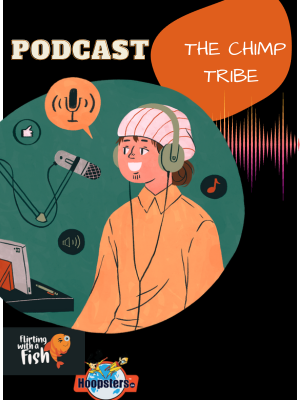
|
WHAT IS ADDICTIONsource : WWW.WHITESWANFOUNDATION.ORGAddiction is a pattern in which a person becomes dependent on a substance (alcohol, cigarettes, drugs, etc.) which gives them pleasure. When the person becomes dependent on a substance, they are unable to focus on other areas of their life, including family, friends and work responsibilities. This creates problems for the person as well as those around them. Addiction is a brain illness with a firm biological basis, and is influenced by social as well as psychological factors. Note There are many misconceptions about addiction, including the belief that a person who is addicted is weak or lacks morals. It's important to remember that addiction is caused by several genetic and environmental factors, and is not a choice alone. According to WHO guidelines, a person is said to have an addiction if: • they feel compelled to imbibe the substance • they cannot voluntarily stop using it (or cut down on using it) • they focus frequently on how to get access to the next dose Here is a list of the WHO's diagnostic terms that are used to refer to addiction-related disorders. Addiction is a chronic, relapsing condition and is quite similar to other chronic illnesses such as diabetes. It requires treatment in the form of intervention and control. A round of treatment does not guarantee that a person will not be addicted again; there are chances of a relapse. A relapse does not necessarily mean that the person has failed; rather it indicates that the person needs more support to get over the substance. |

|
HOW DOES A PERSON GET ADDICTED TO A SUBSTANCE?source : WWW.WHITESWANFOUNDATION.ORGAddictive substances -- alcohol, nicotine-based cigarettes, and drugs -- contain chemicals that create biological changes in the user's body. When a person takes any of these substances, the brain releases dopamine, which triggers feelings of pleasure. This makes the person want to take that substance again and again for the instant reward. The person craves for the substance when they abstain, and desperately wants to recreate the high. The person keeps using the substance, their body's tolerance to it gets higher, and the withdrawal symptoms make them take it again. They may think that they cannot live without the substance, and that it is as important as food, water or oxygen. The person may increasingly find themselves focusing on the substance and end up neglecting work, responsibilities, family and friends. |

|
WHAT IS THE DIFFERENCE BETWEEN SUBSTANCE ABUSE AND ADDICTION?source : WWW.WHITESWANFOUNDATION.ORGIn everyday usage, the term substance abuse refers to a pattern in which a person consumes a substance indiscriminately. The person may be consuming too much of a particular substance, or at inappropriate times and places. A person who abuses a certain substance may or may not be addicted to it. They are able to make decisions on how much to use, and when to stop using the substance, and are able to function normally without using the substance for an extended period of time. However, this does not mean that the usage of the substance does not create physiological, interpersonal or social problems. In clinical terms, addiction refers to a pattern in which a person becomes dependent on a substance. Addiction is a chronic, relapsing disorder. The usage of the substance causes changes in the brain, which makes it difficult for the user to quit using it. Both abuse and addiction can be harmful for the individual |

|
IS ADDICTION A CHOICE?source : WWW.WHITESWANFOUNDATION.ORGPeople begin to use addictive substances due to several reasons: curiosity, peer pressure, an attempt to fit in, modeling of behaviour observed at home, or as an act of rebellion. In that case, why are some people likely to get addicted, while some others remain content with an occasional cigarette, a drink or two? Doctors say that some people are more vulnerable than others to begin with. Those who are extremely impulsive, get angry easily, are oppositional or rebellious, or on the other end of the scale, " being extremely anxious or having low self-esteem are more likely to get addicted", says Dr Prathima Murthy, psychiatrist, NIMHANS Centre for Addiction Medicine. Those who are at a genetic risk for addiction (having had a close relative who had addiction issues) are at great risk too. The environment plays an important role in determining whether a person is likely to get addicted. The availability, accessibility, affordability and social norms regarding the use of addictive substances influence the person's tendency to develop an addiction. A person may begin using a substance due to curiosity, peer pressure or environmental influences, without knowing that they are at risk of developing addiction. People who are vulnerable to addiction also cannot understand when they have reached the "safe" limits. They do not have a strong protective mechanism that tells them when to stop, and so the warning signs (like slurring or swaying after a few drinks) may be missing. This makes the person use more of the substance and cause harm to themselves |

|
WHAT IS KLEPTOMANIAsource : WWW.WHITESWANFOUNDATION.ORGMaria, a 17 year old girl walked in to a therapist's clinic and looked very distressed. After talking for some time, she confessed that she has been in the habit of shoplifting from local stores since she was 14 years old. Before she started doing this, she would steal chalks from school, or pens and other stationery items from classmates. Initially she didn't know what she was doing or why she was doing it, but it gave her a thrill and made her feel happy. She rarely used what she took from places. Of late, she has not been able to stop herself from picking up things at supermarkets and other stores. Everytime this happens, she feels very guilty afterwards.Q : What is kleptomania? A : Kleptomania is defined as the inability to resist an impulse to steal. It is a fairly common condition in the west, in India there are about 1 million cases reported every year. People suffering from this condition have a powerful urge to steal things. What has been stolen is rarely taken for the purpose of personal use or for any monetary value. Objects stolen can range from something as small as a safety pin to larger items such as electronic appliances or furniture Kleptomania usually begins during adolescence or the person's early twenties; it can last throughout a person's lifetime. While it is possible that it begins to manifest at different stages in life "childhood or adulthood " cases of it starting in late adulthood are rare. An accurate number of persons living with kleptomania is not available as people often don't wish to talk openly about it, due to the fear of possibly being arrested or fined. It is relevant to note that the significance of the act of stealing here has nothing to do with the object's monetary value, but, with the feeling of satisfaction felt after getting hold of the object Q : What is the difference between kleptomania and shoplifting? A : Both may seem very alike but it is important to distinguish between the two. (1) Kleptomania is the urge to steal things that are not yours and it is usually performed as a spontaneous act while shoplifting is the attempt to take things for personal use and often involves prior planning. (2) A person with kleptomania feels an impulsive urge to steal in a way that feels compulsive while a shoplifter has an overwhelming desire to own things. The two appear to be similar and related but are different from each other. |



























